Indigenous Peoples' Day, observed on the second Monday of October in various U.S. localities, honors Native American history and culture. It serves as a counter-celebration to Columbus Day, acknowledging the harm caused by Columbus's role in the European colonization of the Americas. The holiday recognizes the resilience and contributions of Indigenous peoples while highlighting the negative impacts of colonization on their communities.
1977: Discussions regarding instituting Indigenous Peoples' Day
In 1977, discussions and propositions took place during The International NGO Conference on Discrimination Against Indigenous Populations in the Americas in Geneva, Switzerland, regarding instituting Indigenous Peoples' Day as a replacement for Columbus Day.
1977: International Conference discusses replacing Columbus Day
In 1977, the International Conference on Discrimination Against Indigenous Populations in the Americas, sponsored by the United Nations in Geneva, Switzerland, began to discuss replacing Columbus Day in the Americas with a celebration to be known as Indigenous Peoples Day.
October 29, 1987: Philippines designated Indigenous Peoples Day
In the Philippines, the National Commission on Indigenous Peoples, as well as various local Indigenous towns, designated October 29, 1987, as Indigenous Peoples Day.
July 1990: First Continental Conference on 500 Years of Indian Resistance
In July 1990, at the First Continental Conference on 500 Years of Indian Resistance in Quito, Ecuador, representatives of Indigenous peoples throughout the Americas agreed to mark 1992 as a year to promote "continental unity" and "liberation".
1992: Indigenous peoples agree to mark 1992 as a year to promote unity and liberation
In 1992, Indigenous peoples agreed to mark 1992 as a year to promote "continental unity" and "liberation", at the First Continental Conference on 500 Years of Indian Resistance.
1992: Protests against the "Quincentennial Jubilee" in the San Francisco Bay Area
In 1992, attendees from Northern California organized protests against the "Quincentennial Jubilee" organized by the United States Congress for the San Francisco Bay Area on Columbus Day.
1992: Berkeley declares "Day of Solidarity with Indigenous People"
In 1992, the city council of Berkeley, California, declared October 12 as a "Day of Solidarity with Indigenous People" and 1992 as the "Year of Indigenous People." The city also renamed Columbus Day as "Indigenous Peoples Day" and implemented related programs in schools, libraries, and museums. Additionally, Get Lost (Again) Columbus, an opera by White Cloud Wolfhawk, was produced that day.
1993: Berkeley holds annual powwow and festival
Beginning in 1993, Berkeley has held an annual powwow and festival on Indigenous Peoples Day.
2003: United Nations declared International Day of the World's Indigenous People
In 2003, the United Nations declared an International Day of the World's Indigenous People, establishing it on August 9. This international holiday has been celebrated also in various nations.
2008: Indigenous Peoples Day eliminated by Governor Arnold Schwarzenegger
In 2008, the Indigenous Peoples Day holiday was eliminated by Governor Arnold Schwarzenegger in the 2008-12 California budget crisis.
2013: California legislature considers AB55
In 2013, the California state legislature considered a bill, AB55, to formally replace Columbus Day with Native American Day but did not pass it.
2016: Taiwan designated August 1 as Indigenous Peoples Day
In 2016, Taiwan designated August 1 as Indigenous Peoples Day under the administration of President Tsai Ing-wen.
August 30, 2017: Los Angeles City Council votes in favor of replacing Columbus Day
On August 30, 2017, the Los Angeles City Council voted in favor of replacing Columbus Day with Indigenous Peoples Day.
October 10, 2019: D.C. Council votes to temporarily replace Columbus Day with Indigenous Peoples Day
On October 10, 2019, the D.C. Council voted to temporarily replace Columbus Day with Indigenous Peoples Day. This bill was led by Councilmember David Grosso (I-At Large) and must undergo congressional approval to become permanent.
2020: President Donald Trump criticized Indigenous Peoples' Day
In 2020, President Donald Trump criticized Indigenous Peoples' Day at a campaign rally in Michigan, calling it an example of how "the radical left is eradicating our history".
2020: City of Newton votes to change the name of Columbus day
In 2020, the City of Newton, Massachusetts voted to change the name of the holiday to Indigenous Peoples' Day.
2021: California does not observe Native American Day
As of 2021, the State of California does not actually observe Native American Day by closing its government offices, giving its employees paid time off, or encouraging private businesses to do the same in observance.
2021: Joe Biden formally commemorated Indigenous Peoples' Day
In 2021, Joe Biden formally commemorated Indigenous Peoples' Day with a presidential proclamation, becoming the first U.S. president to do so.
2021: First White House proclamation on Indigenous Peoples Day
In 2021, the first White House proclamation on Indigenous Peoples Day was released, written with input from Indigenous activists.
2022: Presidential Proclamation issued for Indigenous Peoples' Day
In 2022, a presidential proclamation was issued for Indigenous Peoples' Day.
2022: Washington Examiner published a column calling for the holiday's end
In 2022, the Washington Examiner published a column calling for the holiday's end, saying that Indigenous peoples attacked and conquered each other's land.
May 2023: Washington D.C. awaits permanent legislation
As of May 2023, Washington D.C. has yet to give permanent legislation to the renaming of Columbus Day to Indigenous Peoples Day.
2023: Presidential Proclamation issued for Indigenous Peoples' Day
In 2023, a presidential proclamation was issued for Indigenous Peoples' Day.
2024: Presidential Proclamation issued for Indigenous Peoples' Day
In 2024, a presidential proclamation was issued for Indigenous Peoples' Day.
February 2025: Google announced that Indigenous Peoples' Month would no longer be highlighted by default on Google Calendar
In February 2025, Google announced that Indigenous Peoples' Month would no longer be highlighted by default on Google Calendar, arguing that it was no longer "scalable or sustainable" to continue adding the growing number of national and international "cultural moments" manually to its calendars.
Mentioned in this timeline

Donald John Trump is an American politician media personality and...
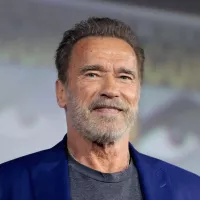
Arnold Schwarzenegger is an Austrian-American actor businessman and former politician...
The United States of America is a federal republic located...

Google LLC is a multinational technology company specializing in online...
California is a U S state on the Pacific Coast...

The White House located at Pennsylvania Avenue in Washington D...
Trending

Kalshi Inc a financial exchange and prediction market located in New York City allows traders to bet on future events...

1 hour ago Jasmine Paolini's WTA Finals Race Intensifies Amidst China Open Contrasts and Gauff's Triumph
Pfizer Inc a global pharmaceutical and biotechnology company was founded in in New York City by German entrepreneurs Charles Pfizer...
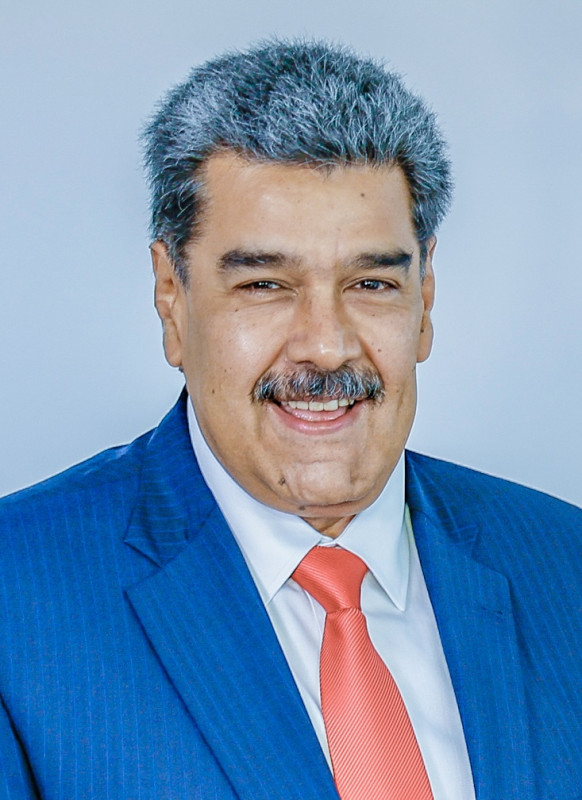
1 hour ago Trump Aides Advocate for Maduro's Ousting Amidst Venezuelan Political Turmoil and Criticism.
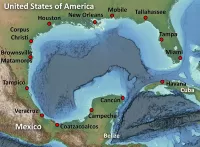
5 months ago House Debates Renaming Gulf of Mexico to Gulf of America: A Contentious Issue
Indigenous Peoples' Day observed on the second Monday of October in various U S localities honors Native American history and...
Popular
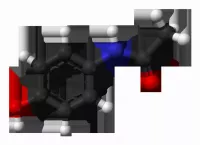
Paracetamol also known as acetaminophen is a commonly used over-the-counter...
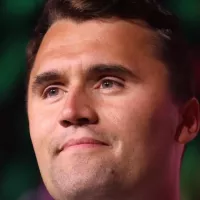
Charlie Kirk is an American right-wing political activist entrepreneur and...
Turning Point USA TPUSA is a conservative nonprofit organization founded...

Candace Owens is an American political commentator and author known...
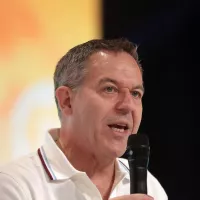
Greg Gutfeld is an American television personality known for his...

Kash Patel is an American lawyer and former federal prosecutor...